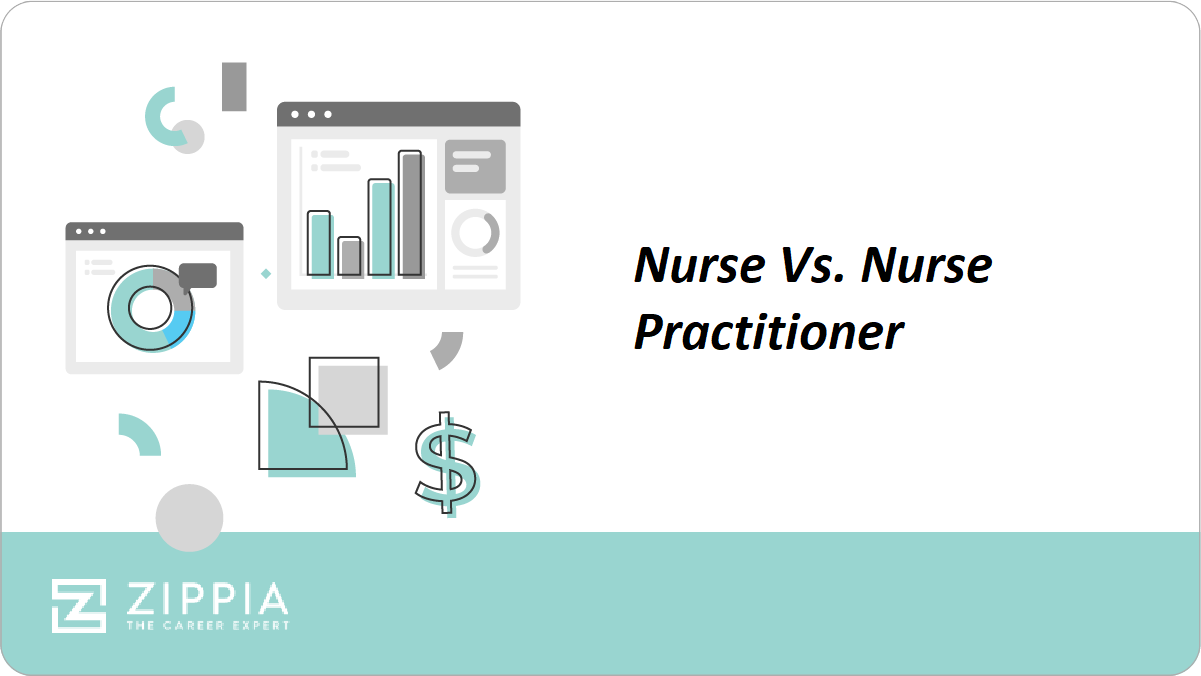Online Nursing Essays
Top Quality Nursing Papers

Why I Want To Be A Nurse Essay

Applying for nursing school is an exciting step towards a rewarding career helping others. The nursing school essay, also known as a personal statement, is a critical part of the application. This is your chance to showcase your passion for the nursing profession and explain why you want to become a nurse.
This guide will show you exactly what admission committees are looking for in a strong nursing school application essay. Let’s walk through how to plan, write, and polish your “why I want to be a nurse” personal statement so it stands out from the competition.
What To Include In Your Nursing Essay
Writing a compelling nursing school essay requires advanced planning and preparation. Follow these tips to create an effective personal statement:
Plan Your Nurse Essay
The first step is to carefully conceptualize your nursing school admissions essay. Jot down some notes answering these key questions:
- Why do you want to go into nursing?
- What personal experiences or traits draw you to the field of nursing?
- How have you demonstrated commitment to caring for others?
- What are your academic and professional qualifications for nursing?
From here, you can start mapping out a logical flow of key points to cover in your nursing school application essay.
Show an Emotional Connection to the Profession
Admission committees want to see that you have genuine passion and empathy for the nursing career choice. Dedicate part of your personal statement to describing your intrinsic motivations and positive impacts for desiring to become a nurse.
Avoid cliché reasons like “I want to help people.” Instead, get specific by sharing a personal anecdote that emotionally moved you towards nursing.
Here’s an example of how you could open your nursing school entrance essay by highlighting a meaningful patient-care interaction:
“Holding Mrs. Wilson’s trembling hand, I watched her fearful eyes relax as I reassured her that the medical team would take excellent care of her. At that moment, providing empathetic comfort to calm her nerves despite the clinical chaos around us, I knew deep down that nursing was my calling.”
This introduction immediately establishes an emotional pull towards the human side of healthcare. From here, explain how this or similar experiences instilled a drive in you to become a nurse.
Show That You Care
Much of nursing is providing compassionate, person-centered care. Therefore, your “why I want to be a nurse” essay should emphasize your ability to be caring, empathetic, patient, and comforting to others.
Share examples that showcase your natural inclination for caregiving:
“Volunteering at the Red Cross shelter after the wildfires by comforting displaced families demonstrated my patience and attentiveness to those suffering. Even as some evacuees grew frustrated by the chaos, I calmly reassured them that we would do everything possible to assist with their recoveries and ensure they felt cared for.”
This example highlights key soft skills needed in nursing as a career, like compassion, active listening, the desire to help, and providing a calming presence under pressure.
Share Your Aspirations
A strong application essay will also articulate your goals and vision for contributing to the nursing field. What are you hoping to achieve through a career in nursing?
Here is an example of discussing aspirations in a nursing school personal statement:
“My long-term aspiration is to become a nurse leader by earning an advanced degree and management experience. I aim to leverage my organizational, communication and critical thinking skills to mentor junior staff, improve operational workflows, and advocate for policies that enhance quality of care. In nursing, I’ve found my true calling – to provide critical care, and help others by being a source of compassion and driving excellence in healthcare delivery.”
This type of self-motivated, forward-looking vision demonstrates maturity, strong goals, and natural leadership qualities.
Describe Your Nursing Skills and Qualifications
Finally, your nursing school entrance essay should summarize the skills; profession offers, and experience that makes you an excellent candidate for the nursing program. Highlight relevant strengths like:
- Academic achievements (science/healthcare courses, GPA, etc.)
- Extracurricular activities (volunteering, internships, etc.)
- Relevant work experience (patient care roles like CNA, medical assistant, etc.)
- Other transferable skills (communication, leadership, teamwork, critical thinking, etc.)
For example:
“My passion for science, healthcare experience as a CNA, and volunteering at a community health fair have prepared me to thrive in the intellectually stimulating and collaborative nursing curriculum. I bring dedication, attention to detail, and a strong work ethic as demonstrated by my 3.8 GPA studying Biology at the University of Michigan.”
With application essays, it’s all about showcasing why you would make an outstanding addition to the nursing program, making a difference through your qualifications and intangible traits.
How Do You Write an Introduction to a Nurse Essay?
Now that you’ve brainstormed content ideas, it’s time to turn them into a polished personal statement. Here are some tips for crafting an attention-grabbing introduction to your nursing school essay:
Hook the Reader with a Personal Story
One of the most engaging ways to start writing your essay is by recounting a brief personal story that illuminates your drive to become a nurse. This can immediately immerse the reader in your intrinsic motivations.
For example , you could open with an anecdote describing a meaningful instance of care and comfort you provided to someone in need:
“Tears streamed down Mrs. Hernandez’s face as she told me about losing her husband to cancer last year. As a hospice volunteer, I held her hand, listening intently to her painful story of grief and loss…”
This type of vivid introduction pulls the reader into the narrative straight away. From here, you can continue sharing details about the scenario and its influence on your desire to pursue nursing.
Illustrate the Human Impact of Nursing
Another compelling way to begin your nursing personal statement is by painting a picture of nursing’s profound impact on patients and their families. This highlights your understanding of the profession’s vital role.
For instance:
“Looking a trembling new mother in the eyes as she first held her newborn, relieved knowing both were safe and healthy after a complicated delivery – that is the human difference nurses make each and every day.”
This type of introduction emphasizes nursing’s profound emotional impact on patients during vulnerable yet joyful moments. It activates the reader’s empathy by bringing them into the vivid scene while showing your own insight into the medical field.
Articulate Passion for Helping Others
Finally, you can start your nursing application essay by asserting your resounding passion for caring for others. This clear expression allows you to succinctly introduce central values like empathy and compassion.
“Ever since I was a young volunteer candy striper in my local hospital, I’ve held an unwavering passion for helping those suffering through the profound act of nursing. I was born to care for others.”
This authoritative opening clearly states your emotional connection to nursing in a compelling yet concise way. You can then build on this assertion of passion through personal examples and further explanation.
No matter how you start your nursing school essay, the introduction should vividly showcase your motivation and why you chose nursing. Set the tone early with your authorship and emotion.
Why I Want To Be A Nurse Essay Examples
Now let’s analyze some complete sample nursing personal statements for inspiration on crafting your own:
Why I Want to Be a Nurse at a Hospital: Essay
Essay on why i want to be a nurse assistant, 1000-word essay on why i want to be a nurse, essay on why i want to be a nurse, why i want to be a nurse: argumentative essay, mental health nursing personal statement, why i want to be a pediatrics nurse, why i want to be a nurse practitioner essay, writing a why i want to become a nurse essay.
To craft a standout nursing school application essay, prospective students should engage the reader with an emotional opening that illuminates their calling to the profession, whether through a compelling personal anecdote or vivid imagery expressing the profound impact of nursing.
The conclusion should be resolved by painting an inspiring vision of how the writer’s skills, values, and determination will be channeled into excellence as a nursing student and future registered nurse, making an empathetic difference in patients’ lives.
With focused, mature writing that radiates passion and preparedness, a “why I want to become a registered nurse” personal statement can stand out amidst the competition as a window into a promising applicant’s commitment to this vital healthcare profession.

Don’t wait until the last minute
Fill in your requirements and let our experts deliver your work asap.
The UMA healthcare blog covers information at the intersection of healthcare, education and employment. Our contributors are familiar with a wide range of subjects covering professional development, career advancement, healthcare industry-specific topics, and education.
7 Reasons Why You Should Pursue a Career in Healthcare
In: Careers Featured Post
Updated: Thursday, March 17, 2022 @ 3:19pm

One of the first steps to choosing a career path is deciding what industry you’d like to work within. The healthcare industry offers many career options in both direct and indirect patient care. If you're considering a job in health services or the healthcare field in general, here are some reasons why they might be a good fit for you.
7 Reasons to Work in Healthcare
Working within the healthcare field can offer many benefits. Here are seven to consider, which can ultimately help you decide whether a healthcare could align with your career goals.
#1: Increasing Demand Means Potentially Greater Job Security
Job security is defined as “being able to expect continued employment, generally at the same job or company.” 1 This means that the employer would need to retain a certain number of jobs for a particular position or increase the available openings. Both of these situations would provide employees with potentially greater job security by minimizing the risk of lay-offs or position eliminations.
Healthcare jobs offer this opportunity as they are projected to increase 16% between 2020 and 2030 according to the Bureau of Labor Statistics (BLS). 2 This equates to about 2.6 million new jobs for healthcare professionals in the years ahead, and in a variety of roles. Among the roles included in these statistics are dental assistant , nursing assistant , medical records and health information management .
#2: You Can Make a Positive Impact in Your Community
If you have a desire to help people in your community, working in healthcare can help you satisfy this goal. Some positions enable you to do this on a one-on-one basis. If you work with patients as a pharmacy technician , for example, you can help ensure that each patient’s medications are correct and in the proper dose.
Healthcare workers in more indirect roles, such as healthcare accountants , can help businesses in this industry keep an accurate record of their finances. This enables healthcare organizations and facilities to understand their financial standing when making important decisions, which can also help them to create a more resilient business that offers services to local patients for years to come.
If you have a desire to help even larger populations, you can do that in healthcare too. Health and human services offers this ability, particularly when in a role focused on promoting public health.
#3: Flexible Work Hours
People can have healthcare issues any time of the day or night. To help meet these needs, many healthcare facilities are open outside of regular business hours. They serve patients at night, over weekends, and on holidays. Depending on where you work, this means the ability to have more flexible work hours.
Maybe you’d prefer to work nights so you can be home with your children during the day. Or you like the idea of working weekends and having a day off during the week to take care of your personal errands. Several healthcare jobs offer this ability, providing more balance between your work life and home life.
#4: Continued Education and Growth
As technology and medical treatments continually advance, so too does healthcare education. Professionals in the healthcare industry never stop learning and growing. That makes this a good field for people who like to continuously pursue a higher level of education and achieve greater professional growth.
For example, medical billing and coding requires the use of the most current coding systems. If old, outdated codes are used, it can hold up the reimbursement process. Staying educated about health coding changes helps ensure that health insurance companies are billed using the proper codes.
#5: Diverse Work Settings
Careers in the healthcare field also offer the ability to work in diverse settings. If you like the idea of working at the front desk in a doctor’s office, for instance, you can do this as a medical administrative assistant . Prefer to be in the exam or treatment room instead? Becoming a medical assistant could fulfill that interest.
Some healthcare fields even offer the opportunity to work remotely. Medical billing and coding is one. Health information management ) is another. As long as you have a computer – and your employer allows it – you can perform your healthcare work duties from the comfort of your own home.
#6: Readily Available Education and Training
Numerous educational institutions are prepared to help individuals interested in pursuing healthcare careers. Enrolling in one can help you gain the knowledge and skills needed to fill a healthcare position.
For instance, at Ultimate Medical Academy (UMA), we offer a number of healthcare programs and degrees . Some of them are available online 3 , others are provided at our Clearwater campus. Clearwater campus programs are a blended training option, which means that part of the program is taken online with a certain number of pre-designated trips to campus for labs and on-site externships at a healthcare facility.
UMA also doesn’t stop at providing the education needed to work in a particular healthcare role. Our Career Services team is dedicated to assisting UMA graduates as they prepare to enter the healthcare job market. Whether our students need help with their resumes or want to practice for an upcoming interview, our team can help.
If you’re concerned about the cost of education or training, financial aid may be an option for you, if you qualify for it.
#7: Upward Mobility
Another reason to consider health careers is that some may offer the ability to move up within these organizations. Depending on the position you want to move into, additional education and training may be required.
For instance, you could start as a medical assistant , helping healthcare providers by collecting and recording patients’ vital information or assisting with an exam. Then you might decide to move into a nursing role, so you go back to school and obtain the education and training necessary to become a licensed practical nurse or registered nurse. 4
Of course, if you enjoy the position you’re in, you don’t have to pursue advancing to a higher-level healthcare role. Working in this industry may simply offer this option if you ever decide that you want to move up. Whether you decide to pursue this option is entirely up to you.
These are just seven reasons why pursuing a career in healthcare might be a good decision for you. And if you decide that it is, Ultimate Medical Academy is here to help!
2 Bureau of Labor Statistics. Occupational Outlook Handbook. Healthcare Occupations. https://www.bls.gov/ooh/healthcare/home.htm
3 Set schedules required for on-site externship/practicum courses in select programs and coursework deadlines are set by instructors.
4 Select credits may transfer at the discretion of the receiving institution.

Discover a new career path today!
Learn how we can help you succeed, let’s talk about it..
You have questions. We have answers.
Complete this form and we’ll email you info on how to get started at UMA, financial aid if qualified, selecting a program, and more. We’ll also give you a call to ensure your questions are answered so you can decide which program is right for you.
By clicking the Request Info button, you agree to be contacted by phone, text message, or email via automated systems by Ultimate Medical Academy about your education at the email addresses and phone numbers you provided above, including any wireless number(s). You are not obligated to agree to automated contact to enroll; instead, you may call us at 888-205-2510 . Note that even non-automated calls are recorded for quality assurance.
- Skip to Content
- Skip to Menu
- Increase Text Size

4 Reasons Why You Should Pursue a Career in Healthcare
- Category: Blog
- Posted On: Jun 25, 2021
Healthcare is one of the world’s fastest growing industries . In addition, other factors have also pushed the healthcare industry to expand rapidly — from alarming public health issues to an increase in health-consciousness among communities.
Healthcare sectors such as life sciences, pharmaceuticals, biotechnology, and services continue to generate many jobs for those who want to provide medical care to people. Indeed, the healthcare industry is thriving — but it still needs more professionals to provide adequate service to the general population.
If you’re not sure about your career choices, we’ve listed down four reasons why you should pursue a career in healthcare.
You get the chance to make a difference in people’s lives
Choosing a career in healthcare gives you the opportunity to make a difference in people’s lives. You play an important part in improving a patient’s well-being by working with other healthcare practitioners to treat illnesses and diseases. Through this, you can make a huge impact on the families and communities that need immediate care. The potential to change and save lives makes a career in healthcare all the more fulfilling and worth it.
There’s a huge demand for healthcare workers
According to the Bureau of Labor Statistics, some of the fastest-growing professions can be found in the healthcare industry — and this includes nurses, therapy assistants, and health service managers. This is partly driven by the high demand for healthcare workers across all sectors. For instance, as the aging population grows, workers aren't just needed in hospitals — but also community centers, nursing homes, and home healthcare settings. To keep up, the education sector is responding to this high demand by offering fully remote healthcare programs. These allow students to pursue various specializations. For example, online geriatric medicine programs train students in the best ways to evaluate the needs of seniors in remote settings. Similarly, those who want to serve communities can take an RN to BSN program, which teaches them all about public health — such as how to collaborate with other organizations and assess patient health, to directing nursing teams. With the accessibility of these courses, more people can conveniently pursue a career in healthcare.
There’s a competitive earning potential
The great thing about choosing a career in healthcare is that you can potentially earn more than what the average American receives in a year. What’s more, your pay increases as you build your skills and receive supplemental training. But even as an entry-level employee, your earning and growth potential is better in healthcare compared to other fields, so that is a great incentive to pursue a career in this industry.
Healthcare jobs offer a certain amount of flexibility
Career stability and demand are especially crucial now. According to the Harvard Business Review, the world continues to experience a global recession , which may eventually worsen into economic depression. Thankfully, healthcare is a universal need. For this reason, healthcare professionals are in high demand in several places around the country, and even the world.
Like we mentioned, they aren't confined to the hospital and health center setting. In fact, you don't even have to be limited to healthcare specifically. For example, nurses work in all areas of medicine, so they can easily find jobs in in-house clinics of private companies all over the country. For those who'd rather work behind the scenes, you also have the option to pursue research or work in labs.
If you're passionate about helping others, you should definitely consider a career in healthcare. Check out job opportunities with Antelope Valley Medical Center at: https://www.AVMC.org/careers/
Written exclusively for AVMC.org by Arlene Chip
Featured Articles

3 Most Important Stroke Risk Factors There are many risk factors for strokes, and some of them may surprise you. If you or someone you know has ...

Helping You Feel Better: Emotionally & Physically When it comes to managing our emotions, it can become easy to avoid what we're feeling or deal with ...
.jpg)
Summertime Wellness Tips for the Entire Family Summertime brings a break from school, more time with family, celebrations, adventures, and great ...

- 16 Oct 2019
Why did you choose a career in health care?
More than 8,000 Harvard Business School (HBS) alumni are working in the health care industry around the world—in biotech, digital health, financial services, and other sectors. We asked seven alumni to explain why they chose their careers in health care.
To solve complex problems in the health care industry. “I was inspired by the complexity of the problems we have across the health care ecosystem and immediately wanted to be part of the change. It was important for me to spend time understanding and appreciating various perspectives within the industry, so I could determine where to apply my skills and expertise to make a difference. I have a background in finance, and I believe you can reduce a lot of the friction by solving how the money flows. So, I was ultimately drawn to the payer/ insurance side of the house.” — Meghan Oliver, MBA ’12 , Senior Vice President Care Partner and Consumer Enablement, Bright Health
To bring life-saving treatments to patients. “Since a very young age, I’ve been strongly inspired by the potential of science to improve the world. Now, in my career, I evaluate and develop strategies to optimize the pipeline of pharmaceutical and biotech companies. This allows me to help push the frontiers of science forward to bring life-saving medicines to patients. I am fortunate that my chosen career path fulfills the sense of purpose that I need.” — Antonio Henriques MBA ’17, Senior Commercial Business Development Manager, Amgen
To improve the health care delivery system. “As an industrial and systems engineer with vast experience in process improvement and design, I am passionate about saving patients’ lives by improving the health care delivery system. Through teamwork and collaboration, my goal is to share my lens and help change the system we are all striving to transform.” — Diannette Figueroa, MBA ’13, Senior Business Transformation Consultant, Accountable Care Solution and Joint Venture Partnerships, Aetna
To streamline how patients access health care. “When so many dated processes are in dire need of a better solution, what other motivation do you need? I am energized at the chance of any small improvement or dent in the status quo that advances access to equitable care and offers simplicity to the health care consumer. It’s a difficult problem, but I believe creative solutions exist that can genuinely make a difference.” — Aanchal Falken MBA ’15, Senior Director of Strategy, NovuHealth
To tackle a challenging industry. “I love starting and running challenging businesses. And what better industry than health care — it is in such disarray in the US.” — Margot Adam Langstaff, MBA ’91, Managing Partner and Founder, LifeHealth
To help people better understand health care. “A few years ago, I witnessed my grandpa’s fight with cancer. The most frustrating part of his journey was navigating the health care system. I learned through talking to others that this is not an issue unique to us, which inspired me to explore using business to provide solutions for better access to care. I joined Johnson & Johnson after graduation as a marketer in the Consumer Health division, and I very much enjoy my job bringing products backed by science to millions of consumers in a fun and intuitive way.” — Richard Qian, MBA ’17, Associate Brand Manager, AVEENO
To bridge the gap between science and business. “I am very passionate about the intersection of science and business. I do what I do to help clients bridge the gap. I speak to scientists about R&D based on my background in biology, and I also communicate with corporate finance and investors about commercialization. There needs to be a bridge between these areas, a cross-pollination of ideas, to make the most progress in this industry.” — Katherine Cheng, MBA ’18, Consultant, The Boston Consulting Group
You Might Want to Read

- 24 May 2023
Student Spotlight: 2023 HCC Co-Presidents Reflect on Their Time at HBS and the Current Health Care Systems

- 28 Feb 2023
Rare Disease Day – Small Numbers, Big Challenges… and Big Opportunities

- 25 Jan 2023
Women, Work, and the “M” Word

- Meet Your Career Coach
- Book an Appointment
- Find Career Resources
- SPS Internship for Credit
- Browse Internships & Jobs
- Hire Our Talent
- Host/Attend an Event
- Employer & Job Posting Policy
- Career & Networking Fair
- Post an Employment Opportunity
- Engage with Our Office
- Refer Our Services
- Partner with Us
- Career Coaching for Alumni
- Exclusive Career Resources
- Start Using SPS Talent
- Connect with Columbia Alumni
- Standards of Professionalism
- Rising to the Top Podcast
- Apparel / Fashion / Retail
- Arts, Entertainment & Recreation
- Construction/ Engineering / Real Estate
- Environmental Services
- Finance / Insurance
- Government / Public Administration / Public Policy
- Pre-Medical
- Human Resources
- Marketing & Communications
- Nonprofit / Community / Social Services
- Black, Indigenous, and People of Color
- Disability Resources
- First Generation / Low Income
- International
- Jobs + Internships
- On-Campus Employment
- Think-a-Thon Challenge & Other Experiences
- HBCU Fellowship Mentorship Program
- Careers in China
- Professional Association Resources
- Meet the Team
- Meet the CDL Interns
Why Pursue a Health Career in 2021?
- Share This: Share Why Pursue a Health Career in 2021? on Facebook Share Why Pursue a Health Career in 2021? on LinkedIn Share Why Pursue a Health Career in 2021? on X
This article from Goodwin University discusses the motivation of pursuing a career within the Health Care industry.

As we enter 2021, many of us do not want to look back on the year we’ve left behind. A global pandemic shook the world and took the healthcare field by storm. Many of us are now looking ahead, including current professionals and future students considering their next career move.
As hard as 2020 was, many of us now recognize the insurmountable value of health professionals. The 18 million healthcare professionals that work in this country have saved lives, researched and developed treatments, and helped to create a vaccine against COVID-19. On top of this, healthcare is considered one of the best industries to work in today – filling 46 of U.S. News’ 100 Best Jobs of 2020.
Whether you are looking to make a career change or simply looking to make a difference, 2021 may just be the time to do so. If your life has been forever changed by the pandemic, and you want your life’s work to have a real impact, you may be thinking about a career in healthcare, too. But you still may be asking yourself, “Why pursue a health career?” Read on as we explore the top reasons to pursue a health-related career in 2021.
Go here to read the full article .

Why Pursue a Health Career in 2021?
As we enter 2021, many of us do not want to look back on the year we’ve left behind. A global pandemic shook the world and took the healthcare field by storm. Many of us are now looking ahead, including current professionals and future students considering their next career move.
As hard as 2020 was, many of us now recognize the insurmountable value of health professionals. The 18 million healthcare professionals that work in this country have saved lives, researched and developed treatments, and helped to create a vaccine against COVID-19. On top of this, healthcare is considered one of the best industries to work in today – filling 46 of U.S. News’ 100 Best Jobs of 2020.
Whether you are looking to make a career change or simply looking to make a difference, 2021 may just be the time to do so. If your life has been forever changed by the pandemic, and you want your life’s work to have a real impact, you may be thinking about a career in healthcare, too. But you still may be asking yourself, “Why pursue a health career?” Read on as we explore the top reasons to pursue a health-related career in 2021.
- A Bright Outlook
It’s no secret that healthcare is one of the largest job industries in the U.S. – and the U.S. Bureau of Statistics (BLS) expects that it will only grow more. Employment of healthcare professionals is expected to grow 15 percent over the next several years, with 2.4 million new jobs entering the mix by 2029. This is more jobs than any other field today, and it is mainly due to an increased demand for healthcare services. As the baby boomer population continues to age, the demand for healthcare among our senior population will reach record numbers.
In addition, the pandemic has increased the need for more healthcare workers. Take mental health, for example. The nation’s mental health was put to the test in 2020. From quarantining and social distancing to social injustices and political turmoil, we faced more challenges in one year than many face in a lifetime. According to the Centers for Disease Control and Prevention (CDC), 40 percent of adults reported struggling with mental health or substance abuse in June of 2020. This underlines the need for more clinical professionals in the field.
Healthcare is one of the highest-paying industries today. In fact, it dominates U.S. News’ list of the best paying jobs in 2020 . In 2019, the median pay for registered nurses was $73,300 per year. The median annual wage for all healthcare practitioners and technical health occupations (from physicians to dental hygienists) was $68,190 annually. These figures are considerably higher than the median annual wage for all occupations, of $39,810.
- A Diverse Choice
Unless you have a clear-cut idea of what you want to do with your future, it can be hard to decide the exact career you crave. The beauty of the healthcare industry is the amount of variety that comes with it. You may pursue a degree program that leads you to becoming an occupational therapy assistant, a healthcare administrator, a community health educator, or even a dental hygienist.
Check out this list of growing healthcare careers from the BLS. Or, take a look at some of the healthcare career options available through Goodwin University:
- Dental Hygienist
- Respiratory Therapist
- Occupational Therapy Assistant
- Registered Nurse
- Phlebotomist
- Medical Assistant
- Nurse Manager
- Health Educator
- Medical Biller & Coder
- Healthcare Administrator
- Public Health Nurse
With a degree in healthcare, your career path is wide open. You may start a program with your heart set on nursing, but ultimately decide you would rather be a medical biller. The healthcare field is your oyster!
- An Exciting Career
If you’ve ever watched a medical drama or taken a trip to the ER at your local hospital, you might already have an idea of how exciting the medical profession can be. Each day is different, and oftentimes, health professionals work with a variety of patients from different walks of life. Recent events from the past year have only added to that excitement. From protests to wildfires, there have some unprecedented events causing medical emergencies. Working in the healthcare field today is like, as Forest Gump would say, a box of chocolates. You never know what you’re going to get.
- More Flexibility
In 2020, we saw more people working from home than ever before. And despite what you may have thought, this includes many front-line healthcare workers! Telemedicine is here to stay. Virtual healthcare appointments, and telehealth overall, will give professionals in the health care field more options to work from home, offering greater flexibility. Learn more here.
- A Rewarding Professional Life
After the year we’ve all had, you might be looking for a meaningful career. As other healthcare professionals in the field would tell you, this is not just a job – it’s a calling. The individuals who work in the healthcare industry, the essential workers who have put their lives on the line, felt a calling to help those in need . This is the foundation of their values and their desire to work in healthcare. They have bravely put on their PPE and continued to serve patients in the face of a global pandemic. They work tirelessly to help people who are sick, injured, or disabled. They improve quality of life and save lives on a daily basis. At the end of the day, is there anything more rewarding than that?
If you’ve reached 2021 feeling anxious and in need of a change, you may be looking for a big move in your career. Perhaps your desire for something more rewarding, exciting, and meaningful is just what the doctor ordered. So instead of asking “Why pursue a health career?”, you may want to start asking yourself “ Why not?”
Learn more about the healthcare degree programs at Goodwin University today. Call us at 800-889-3282 to learn why we’re a leader in healthcare education in Connecticut.

Goodwin University is a nonprofit institution of higher education and is accredited by the New England Commission of Higher Education (NECHE), formerly known as the New England Association of Schools and Colleges (NEASC). Goodwin University was founded in 1999, with the goal of serving a diverse student population with career-focused degree programs that lead to strong employment outcomes.
Finding the egg yolk: Why I chose public health
Mymai yuan mph ’23 health management she/her/hers.
A metaphor spoke to me during a time in my life when I was thinking deeply about my purpose: To find our “dream job,” we must find the egg yolk. That is, we should base our search not on job descriptions out there, but by considering the parts of our own experience we cherished. In this way, we find the core values that drive our explorations.
Born and raised in Thailand, I attended an international English-speaking high school. My trilingual background, the cultural diversity of my social bubble, and the striking economic disparities of my country drew me to people’s stories. At school, I started a spoken poetry movement on the healing nature of community storytelling.
I came to the U.S. for the first time in my life to pursue my undergraduate studies at the University of Pennsylvania, where I majored in both cognitive neuroscience and creative writing. Both fields enabled deeper exploration into the humanity of health. While cognitive neuroscience delves into the tissue of memory, creative writing dissects the power of our inherent mortality through the language of grief and love. The privilege of an empowering education affirmed my dream of building more equitable care in Thailand and other low-to-middle-income countries.
In preparation for my hopes of working in resource-constrained settings, I spent two years at a New York-based health care management consulting firm where I worked on projects looking at chronic illnesses and health care innovation. As I gained financial skills and language in the private sector, I realized the core importance of public health.

With this knowledge, I moved back home to Thailand and joined an international public health non-governmental organization (NGO). There, I co-led a global health project to reduce non-communicable diseases and support Thailand’s COVID-19 response. This role and the compassion of my colleagues shaped me profoundly. While witnessing the inequities of COVID-19 across populations, I dove into global health’s history and the political economy that has shaped it. There, I created a protocol exploring ways for project members to share the historical context of the countries in which we worked, prioritizing language and cultural inclusivity. I recognized that such a protocol treats only the symptoms of a deep-rooted issue.
That year, I made the difficult (and very lucky) decision to defer medical school and, instead, pursue public health at Harvard Chan. I was drawn to the global impact and socio-economic-political lens of public health, which I felt was crucially lacking in the world’s COVID-19 response. I was particularly drawn to Dr. Jesse Bump ’s work in the history of global political economies and decolonizing global health, and a previously hosted student-led conference, “ Decolonizing Global Health .”
Today, I work as a research assistant and teaching fellow with Dr. Bump; an Equity, Diversity, and Inclusion (EDI) fellow ; and co-founder of the student organization “Harvard Chan Students for Decolonizing Global Health.” My research interests also include global health economics, financing, and payment systems. I am so grateful for the conversations I’ve been able to have with my peers here, and how much I’ve learned from them.
My passion for the humanity of health continues as a Harvard Chan student. Though my path has had many curves, my time here has helped me continue to define the “yolk” that connects everything I have explored. The students, mentors, and professors at Harvard have deepened my understanding of global health equity, and I am thankful to share with them an affinity to build a more just world.
Read more about MyMai .
You must be logged in to post a comment.
- Bipolar Disorder
- Therapy Center
- When To See a Therapist
- Types of Therapy
- Best Online Therapy
- Best Couples Therapy
- Best Family Therapy
- Managing Stress
- Sleep and Dreaming
- Understanding Emotions
- Self-Improvement
- Healthy Relationships
- Student Resources
- Personality Types
- Guided Meditations
- Verywell Mind Insights
- 2023 Verywell Mind 25
- Mental Health in the Classroom
- Editorial Process
- Meet Our Review Board
- Crisis Support
Choosing a Healthcare Career
Andrea Clement Santiago is a medical staffing expert and communications executive. She's a writer with a background in healthcare recruiting.
:max_bytes(150000):strip_icc():format(webp)/AndreaSantiago-594d60a83df78cae81e0acea.jpg)
Emily is a board-certified science editor who has worked with top digital publishing brands like Voices for Biodiversity, Study.com, GoodTherapy, Vox, and Verywell.
:max_bytes(150000):strip_icc():format(webp)/Emily-Swaim-1000-0f3197de18f74329aeffb690a177160c.jpg)
Healthcare careers can be a great choice for people who love helping others and are interested in science, technology, medicine, and math. The demand for health services is expected to grow in the coming years, making healthcare an excellent career path for people who want stable, secure jobs.
While these jobs are in high demand and can pay very well, it is also important to be aware of some of the potential drawbacks as well. These jobs can also involve a lot of stress . Burnout is a risk. And the educational and training requirements can be costly and time-consuming.
Before you decide on a healthcare career, consider whether these types of jobs are a good fit for your temperament and experiences. With many opportunities to choose from, you can zero in on the area of healthcare and the role that suits you best.
Benefits of Healthcare Careers
A career in healthcare offers many advantages. An ageing society means the outlook for jobs in this field is very good. The Bureau of Labor Statistics projects that job opportunities in health care will grow 16% from 2020 to 2030, which is much faster than average and translates to about 2.6 million new jobs. This also means that salaries in the field are often higher than average, and come with good benefits .
A healthcare career is not limited to being a physician or nurse. There is a huge variety of jobs in healthcare, from athletic trainer to pharmacist to veterinary technician, not to mention supporting roles in areas such as finance, maintenance, research, or communications.
In healthcare, you have the opportunity to specialize in a field that is meaningful to you. But all involve helping people, which makes the work fulfilling. And the environment tends to be fast-paced, which is a plus for many people.
Educational and Training Requirements
The degrees, diplomas, and training required for various healthcare jobs can run the gamut from a high-school diploma to a medical degree plus advanced specialization. Being a doctor or a high-level nurse can be a significant investment of time and money.
When considering a career in healthcare, think about how to finance and make time for the necessary education. If a medical degree doesn't seem feasible, consider alternatives such as physician's assistant or nurse practitioner programs. Educational requirements for healthcare jobs vary considerably.
With a high-school diploma diploma or equivalent, you could become a home health aide, orderly, optician, pharmacy technician, psychiatric aide, veterinary assistant, or lab animal caretaker.
With an associate's degree or postsecondary training certificate, you could qualify to be a dental hygienist, emergency medical technician, medical sonographer, cardiovascular technologist, licensed practical nurse, massage therapist, medical assistant, medical records specialist, medical transcriptionist, nuclear medicine technologist, certified nursing assistant, psychiatric technician , occupational or physical therapy assistant, occupational health and safety technician, paramedic, phlebotomist, radiation therapist, radiologic or MRI technologist, respiratory therapist, surgical technologist, or veterinary technician.
With a bachelor's degree , you could become an athletic trainer, lab technician, dietitian or nutritionist, exercise physiologist, recreational therapist, or registered nurse.
With a master's degree , you could pursue a career as a genetic counselor, mental health counselor , nurse anesthetist, nurse midwife, nurse practitioner, occupational therapist, orthotist, prosthetist, physician assistant, or speech-language pathologist.
With a doctoral or professional degree , you could be an audiologist, chiropractor, dentist, optometrist, pharmacist, physical therapist, physician, psychologist , surgeon, or podiatrist.
Skills You Will Need
Each health career requires different skill sets and personality traits. However, there are a few common attributes. Most roles require excellent interpersonal and communication skills, some level of technical or mathematic capacity, and a strong work ethic.
Additionally, most healthcare careers entail a great deal of responsibility and maturity. Your patients' well-being and even their lives could depend on the quality of your work.
If you love to learn new things, that will serve you well as a healthcare professional. The healthcare field changes constantly with the development of new technology, advanced procedures, emerging treatments, and even new diseases.
Your Interests
What is your passion? No matter what drives you, there is a role for you in the medical field. You may have already considered being a nurse or a doctor. However, allied health care offers a world of opportunity.
For example, if cardiology (heart health) is a cause that moves you, you could be a cardiologist, a cardiovascular technician, a cardiac nurse, or cardiac perfusionist. If you love working with kids, pediatrics could be the field for you—as a medical assistant, occupational therapist, physician, psychologist, or registered nurse.
Within each medical specialty, jobs are available for any level of education or area of interest. If you love statistics and math, maybe medical research is appealing, for example. If you are into sports and fitness, you might consider a career in athletic training, exercise physiology, physical therapy, or sports psychology .
The Work Environment
In which type of environment would you be most comfortable, and most successful? For example, if hospitals seem too cold or too large, you probably should not be a surgeon or a hospital nurse. If you love being around people and working hands-on with patients, a career in research or pathology may not be satisfying.
Remember that there are healthcare jobs in many settings other than hospitals, doctors' offices, and care facilities. Healthcare providers work on military bases and cruise ships, at schools and factories, and in clinics serving remote communities.
Work-Life Balance
Be sure to consider how your life and family will be affected while you are in school, completing training, and after you get a job in healthcare. For example, doctors, nurses, and many other healthcare providers may be required to work nights or weekends, work long shifts, and be on call.
Additionally, investigate whether jobs and training programs are available in your area, or whether you may have to relocate. Is this feasible for you? How will the financial requirements of education and training affect your family? It is crucial to think about all of this before you begin to invest energy, time, and money towards pursuing a career in the healthcare field.
A Word From Verywell
With such a wide range of opportunities in the healthcare field, you have many choices if you are interested in a healthcare career. Though it will take an upfront investment of time and money for training, a job in health care offers many rewards, both financial and intangible. Planning ahead can help you achieve your goals.
Koinis A, Giannou V, Drantaki V, Angelaina S, Stratou E, Saridi M. The impact of healthcare workers job environment on their mental-emotional health. Coping strategies: the case of a local general hospital . Health Psychol Res . 2015;3(1):1984. doi:10.4081/hpr.2015.1984
U.S. Bureau of Labor Statistics. Healthcare occupations . Occupational Outlook Handbook.
Dyrbye LN, Shanafelt TD, Sinsky CA, et. al. Burnout among health care professionals: A call to explore and address this underrecognized threat to safe, high-quality care . NAM Perspectives.
By Andrea Clement Santiago Andrea Clement Santiago is a medical staffing expert and communications executive. She's a writer with a background in healthcare recruiting.
Make Caring Your Career
Why a Career in Health?
The Bureau of Labor Statistics expects health care to be the fastest growing employment industry between 2014 and 2024. This projection is good news for you as it means increased job security as more and more fulfilling, lucrative positions are being created for people driven to make a difference in their communities.
ExploreHealthCareers.org strives to highlight the opportunities health careers offer and serve as your expert resource as you navigate your career path. With content authored by those already working in the field themselves, we’ll connect you to the knowledge you need to choose the right health career and apply and pay for school.
Together, we can make caring your career.
10 Reasons to Pursue a Health Career
A career is more than a paycheck. It’s something you’ll be doing 40 hours a week for 40 years or more. That’s why you should carefully consider the reasons you are choosing your career. And while a good salary and interesting work are at the top of the list, there are even more reasons to consider a health care career.

You’ll enjoy job security:
You will do work that interests you:, you can live and work anywhere you want:, you can find a health career that fits your educational plans:, you can learn by reading and doing:, you can get help to pay for school:, you’ll have a clear path to advancement:, you’ll earn a good salary:, you can work with people (or not):, you’ll make a difference in people’s lives.

Explore Jobs
- Jobs Near Me
- Remote Jobs
- Full Time Jobs
- Part Time Jobs
- Entry Level Jobs
- Work From Home Jobs
Find Specific Jobs
- $15 Per Hour Jobs
- $20 Per Hour Jobs
- Hiring Immediately Jobs
- High School Jobs
- H1b Visa Jobs
Explore Careers
- Business And Financial
- Architecture And Engineering
- Computer And Mathematical
Explore Professions
- What They Do
- Certifications
- Demographics
Best Companies
- Health Care
- Fortune 500
Explore Companies
- CEO And Executies
- Resume Builder
- Career Advice
- Explore Majors
- Questions And Answers
- Interview Questions
How To Answer “Why Do You Want To Be A Nurse?” (With Examples)
- Cover Letter
- Registered Nurse Interview Questions
- Registered Nurse Job Description
- Why Did You Choose Nursing?
When you’re in a nursing interview, you’ll hear the common question “Why do you want to be a nurse ?”, so it’s essential to know how to answer it. Your answer should reflect on what it was that drew you to nursing and tell a story about it, such as the moment it was clear that you wanted to be a nurse.
Whether you want to be a pediatric nurse , emergency department nurse, or travel nurse, we’ll go over how to answer “Why did you choose nursing as a career?”, why interviewers ask this question, as well as some common mistakes to avoid.
Key Takeaways:
Try to think of a story or a moment that made it clear that a nursing career was right for you.
Interviewers ask “Why do you want to become a nurse?” so you can highlight your passion for nursing and what got you interested in the field.
Avoid saying anything negative because it can often be a red flag for interviewers.

How to answer “Why do you want to be a nurse?”
Example answers to “why do you want to be a nurse”, why interviewers ask this interview question, common mistakes to avoid when answering, interview tips for answering this question, possible follow-up questions:, nurse career path faq, final thoughts.
- Sign Up For More Advice and Jobs
To answer “Why do you want to be a nurse?” you should first ask yourself questions as to why you want to be a nurse, start at the root, and tell your interviewer a story. Below is a more detailed list of how to answer this interview question .
As yourself questions. Before the interview, ask yourself, putting money and career goals aside, why do YOU want to be a nurse? Consider the following questions to better understand your reasoning:
Do you want to help people?
Does the medical field excite you?
Do you have certain skills, such as communication or concentration under duress, that naturally fit the position?
Do you thrive when you get to build relationships with people?
Do you love both science and working with people?
Focus on these aspects of yourself when you are asked why you are choosing nursing as a career.
Start at the root. If you’ve wanted to be a nurse since you were a kid, start there. If you got into medicine thanks to an impactful college professor , make that your starting point.
Tell a story. Most interviewers prefer narratives over bullet point facts — especially with a personal question like this. Don’t feel like you have to make up some great tale about how a nurse saved the day when you were a child, but bring in real moments when it became clear that nursing was the career for you.
Talk about people and experiences. Nursing is all about building relationships, so your answer should touch on your empathy and ability to form bonds with the people you work with and serve. In this way, your answer will show that you want to be a nurse because you truly enjoy the process of nursing.
Bring it to the future. Close your answer with a nod to the future and what you’d like to accomplish in your brilliant new nursing career. Bringing your answer from the past to the future shows that you’re forward-thinking and determined enough to make your dreams a reality.
Below are example answers to “Why do you want to be a nurse?” for different scenarios such as pediatric or emergency room nursing. Remember to tailor your answers to your specific needs when you answer in your interview.
Pediatric nurse example answer
“I have wanted to get into nursing since I was very young. One of my earliest memories is of a nurse taking care of me when I had to go to the hospital for stitches. She was so kind and gentle with me that I didn’t even cry or panic. I remember leaving thinking that was the kind of person I wanted to be when I grew up. Ever since then, everything I have done has been working towards becoming a nurse.”
Emergency room nurse example answer
“When I was in college I took a course on basic first aid and found it super interesting. I started signing up for volunteer first aid positions and some of my fellow volunteers were nurses. I was curious about their job and the more I learned about what they did the more I found myself excited by the prospect of helping people in medical situations. I made friends with these nurses and they helped guide me through the application process.”
Travel nurse example answer
“Medicine is such an exciting field, and one of the biggest joys of nursing is that I’m always learning new things. I know people who dread getting their necessary CEUs every year, but for me, it’s a perk of the career. “For instance, just last year I completed my certification from the Wilderness Medical Society and can now serve as medical staff on the Appalachian Trail. But from Diabetes for APRNs to Nursing for Infertility courses, I’m always able to maintain my passion for nursing through continuous discovery and wonder at the medical field.”
Critical care nurse example answer
“I believe in helping people, especially in times of extreme need. When I worked as an EMT I was always the one asked to facilitate information between any involved party. I want to expand this skill and I think nursing is a good fit for me. My interests and experience with medical professionals are good for this job.”
Nurse midwife example answer
“I want to be a nurse because I am deeply committed to providing compassionate healthcare to women during one of the most significant and transformative moments of their life. Being a nurse midwife will allow me to empower women by advocating their choices and preferences during childbirth. “Being a nurse midwife will also allow me to make a positive impact on the lives of women and their families. I will be able to provide personalized care, emotional support , and educational resources to help ensure a smooth and empowering birthing experience for my patients.”
Oncology nurse example answer
“I want to be an oncology nurse because this field is driven by a profound desire to make a meaningful difference in the lives of those fighting cancer. I am committed to providing compassionate care to patients during their cancer journey. “Working as an oncology nurse also has the opportunities to be part of cutting-edge research and advancements in cancer treatments. I want to be at the forefront of innovation and help contribute to the improvement of cancer care outcomes.”
The interviewer will ask why you want to be a nurse to know how serious you are about the position. This isn’t a career to take lightly because there are many challenges.
Nursing is a profession with a prerequisite for assisting others in potentially high-stress environments. So by answering this question, you are given the opportunity to highlight not only your skills but more importantly, your passion for nursing and ability to keep cool under pressure.
Additionally, interviewers hope to learn why you got interested in the field in the first place. Telling a story about an impactful experience with a medical professional or about the sense of satisfaction you feel when helping a patient can help illustrate that you’re not only skillful but also have deep compassion for the people you’ll be working with.
You should avoid saying anything negative because it can be a red flag for the interviewer. Here are some other common mistakes you should avoid when answering:
Saying anything negative. A negative response will be a red flag for the interviewer. If you are one to complain or see the worse in a situation, this will make you a difficult coworker in an already difficult field.
Focusing on money or self-serving reasons. Even if the wages are an attractive feature of the profession, mentioning this as a reason will hurt you. The interviewer is looking for an answer that goes beyond your own needs.
Unrelated anecdotes. Don’t get caught up in telling stories about nursing that have nothing to do with you or the job. Remember to keep things relevant and concise.
Your answer should be positive and you should use a personal experience to help you answer and tell a story. Here are some more tips to keep in mind when answering this question:
Be positive. Nothing will concern an interviewer more if you are cynical and negative in an interview where the job requires a strong sense of empathy and selflessness. This does not mean you can’t, nor should, ignore the challenges of the profession. If you can reframe these difficulties with a positive mindset and a “can do” attitude, you will strengthen your impact in the interview.
Be concise. A long-winded, rambling answer may give the impression that you have not considered the question ahead of time. That said, if you rush through your words, you may concern the interviewer as well. So, don’t be afraid to take breaths or have moments of silence, but choose your words carefully and effectively. Concise communication is a huge part of the nursing profession so here is an opportunity to highlight that skill.
Use personal experience. When answering the question “Why did you choose nursing as a career?” it can really help to bring in a personal touch to the response. This creates a unique answer that can help you stand out among other candidates. The personal experience may also reveal a moment of inspiration pointing towards why you chose nursing as a career.
Remember the job description. Use the skills required in the job description and apply them to yourself as you explain your interest in the field. Integrate them with care, you are not trying to restate your resume . Instead, consider how your skills have developed over time and how that relates to your interest in nursing. Remember, skills are developed through some kind of interest too.
Research the organization/department. Wherever you are applying to is going to have unique characteristics. Perhaps the organization focuses on low-income individuals or the elderly or intensive care patients. You may be able to bring this into your answer. Even if you do not, it is still good to give you context. By understanding where you’re applying to, you strengthen the explanation of why you are applying.
Practice your answer. Before the interview, practice this answer, preferably with someone else who can give you feedback such as a friend or family member. However, if you do not have that opportunity, practice in front of a mirror or, better yet, record yourself on your phone and listen back to what you said. In the end, you want to “train” for this question by giving yourself the opportunity to run through it a couple of times with the chance to tweak your response.
After the question “Why did you choose a nursing career?” there will most likely be follow-up questions. Here are some examples of other common interview questions and some tips on how to answer them. This will help you prepare yourself for the direction the interview may take.
What do you think is most difficult about being a nurse? Why?
Be aware of certain challenges of nursing ahead of time. Do some research . The worst thing you can do for yourself is be caught off guard by this question.
How are you at handling stress?
Consider what techniques you use for reducing stress. It is going to be important to show your competency. Consider answering in a way that reveals you to be a team player and aware of the stresses of your coworkers as well.
What are your long-term career goals?
The interviewer is going to be gauging your seriousness in becoming a nurse. It is not a profession that you can just “try-out”, so give an answer that shows sincere consideration for a long-term medical profession. Note: This does not necessarily tie you strictly to nursing. Many managers and hospital administrators come from nursing backgrounds.
Why do you want to work here?
Many interviewers will want to hear about not only your passion for nursing as a career but also how your passions align with their organization.
Look up the mission and vision of the facility before your interview and talk about how that resonates with you, or give an example of how you’ve seen them in action and want to be a part of that.
What drove your interest in this specialty?
Not every nurse fits well in every nursing role, so your interviewers will likely ask you why you want this particular job.
Whether this is the specialty you’ve always worked in or you’re trying something new, structure your answer similarly to your answer to the “Why do you want to be a nurse?” question.
Why would one want to be a nurse?
Many people want to be a nurse because it gives them an opportunity to help people in a meaningful way. Nurses not only perform specialized tasks that are vital to a person’s well-being, but they also get to emotionally support people who are going through an incredibly difficult time.
This can be as simple as being a calm, friendly presence or advocating for them with the rest of the medical staff, but it makes a huge impact on people’s lives.
In addition to this, many people choose to become nurses over another occupation that helps people because they love science and medicine or love the fast-paced, challenging work environment.
What is a good weakness to say in a nursing interview?
A good weakness to say in a nursing interview is a weakness that you’re actively working on. Whether your greatest weakness is that you’re too detailed with your paperwork or say yes to too many people and requests, always follow it up by explaining the steps you’re taking to overcome that weakness.
Hiring managers don’t expect you to be perfect, but they do expect you to be self-aware and take the initiative to minimize the impact of your weak spots.
What are the 6 C’s of nursing?
The 6 C’s of nursing are care, compassion, communication, courage, and commitment. These are principles taught to many nurses to help them learn how to give excellent care to patients.
They also help to set cultural expectations at medical facilities, since all of the nurses are upheld to this standard, no matter what their educational background or specialty.
What are some common nursing interview questions?
Some common nursing interview questions include:
What skills do you think are important for nurses to possess?
Describe your experience as a nurse and what you’ve learned from it.
How would you manage an uncooperative patient?
How well do you thrive in a fast-paced environment?
There are so many nursing jobs out there and nurses are in high demand. You will want to know what you’re getting yourself into before you are asked at the interview what brings you to the field.
Knowledge is power, so knowing your response to “Why did you choose a nursing career?” is crucial for success. This is your moment to shine and show why you are the best candidate for the job.
Those who are able to answer with sincerity and empathy are the types of nurses all organizations will want. So get yourself ready and figure out ahead of time why you want to be a nurse.
Nightingale College – How To Ace Your Nursing Job Interview: Questions, Answers & Tips
The College of St. Scholastica – Why do you want to be a nurse? Students share their sentiments
How useful was this post?
Click on a star to rate it!
Average rating / 5. Vote count:
No votes so far! Be the first to rate this post.

Conor McMahon is a writer for Zippia, with previous experience in the nonprofit, customer service and technical support industries. He has a degree in Music Industry from Northeastern University and in his free time he plays guitar with his friends. Conor enjoys creative writing between his work doing professional content creation and technical documentation.
Recent Job Searches
- Registered Nurse Jobs Resume Location
- Truck Driver Jobs Resume Location
- Call Center Representative Jobs Resume Location
- Customer Service Representative Jobs Resume
- Delivery Driver Jobs Resume Location
- Warehouse Worker Jobs Resume Location
- Account Executive Jobs Resume Location
- Sales Associate Jobs Resume Location
- Licensed Practical Nurse Jobs Resume Location
- Company Driver Jobs Resume
Related posts

How To Answer “Why Do You Want to Be a Doctor?” (With Examples)

How To Write A Consulting Resume

Nurse Vs. Nurse Practitioner

How To Nail Popular Teamwork Interview Questions
- Career Advice >
- Get The Job >
- Why Do You Want To Be A Nurse
📕 Studying HQ
Why i deserve a nursing scholarship essay example | outline, bob cardens.
- August 24, 2022
What You'll Learn
Why I deserve a nursing scholarship essay Example | Outline
Outline of the nursing scholarship essay, introduction, my background and why i am a good candidate for a nursing scholarship, why i want to be a nurse and how it would benefit my patients, my goals for becoming a nurse and how the nursing profession can help me meet them, how the nursing profession can help me develop as an individual and meet my future goals, why i deserve a nursing scholarship essay example.
I am writing this essay in order to prove that I deserve a nursing scholarship . Nursing has always been my passion, and I have dedicated my entire life to becoming a nurse . I believe that I have what it takes to be a great nurse and contribute to society in a positive way .
I have worked extremely hard to achieve the successes that I have, and I am confident that I can continue to do so as a nurse . My achievements include receiving scholarships for academic excellence and community service, being named a “rising star” by my hospital, and being part of the National Honor Society.
Nursing is an extremely challenging field , but I am determined to become the best nurse possible. My ultimate goal is to provide quality care for my patients and make a positive impact on their lives.
As you continue, thestudycorp.com has the top and most qualified writers to help write your nursing scholarship essay. All you need to do is place an order with us.
Not a nursing student here’s How To Write An Appealing Scholarship Essay [+ Examples & Outline]
Scholarship Essay Writing Services
My name is ____________ and I am a senior at ___________. I have been involved in extracurricular activities such as nursing and volunteering my time to different organizations since I was a child. My involvement in these activities has shaped me into the person I am today, and I believe that my skills and experiences make me the perfect candidate for a nursing scholarship .
First and foremost, I am a dedicated nurse. Throughout my years of involvement in this field, I have developed an innate understanding of how important it is to provide quality care to my patients . My experience has also taught me how to be organized and how to work efficiently under pressure. These skills are essential for a nurse , as they constantly face deadlines and stressful situations.
In addition to my dedication to the nursing field, I also possess strong leadership skills . Throughout my years of volunteering and working within various organizations, I have been responsible for directing others on multiple occasions. My ability to lead teams successfully is something that will be invaluable when working in a clinical setting as a nurse. Finally, I am deeply passionate about helping others and feel that nursing is the perfect profession for me to dedicate my career to. All of these qualities make me the perfect candidate for a nursing scholarship. I believe that my skills and experiences will be a valuable addition to any hospital or clinic , and I am eager to begin my career in this field.
I am a hard-working and motivated student who has always strived to accomplish the best I can. I have excelled in all areas of my academic career, including during my nursing studies . I have completed many challenging courses and have obtained numerous awards, scholarships, and accolades throughout my schooling. In addition to this, I have also contributed volunteer time and services to various organizations and communities . My goal has always been to make a positive impact on the people around me, and I believe that being a nurse is the perfect way to do that.
I am confident that with hard work and dedication, I can become a successful nurse and contribute greatly to the health of those in need . I believe that the Nursing Scholarship offered by my chosen nursing school is an excellent investment – one that will pay off both financially and emotionally for years to come.
As you continue, thestudycorp.com has the top and most qualified writers to help write your nursing scholarship essay. All you need to do is place an order with us. The above Why I deserve a nursing scholarship essay Example provides guidance on how to write a nursing scholarship essay.
I want to be a nurse because it would benefit my patients immensely. I have always been drawn to helping others, and being a nurse would allow me to do just that on a daily basis. Nurses are some of the most important people in the healthcare system , because they are responsible for keeping patients safe and healthy. They provide relief and comfort to those who are facing difficult times, and their work has a huge impact on the quality of life of those who rely on them. I know firsthand how important nurses are, and I am committed to giving the best care possible to my patients .
As a student, I know that I want to pursue a career in nursing. I have come to understand that the nursing profession can help me meet my goals and achieve success . Nursing offers a wide range of opportunities for growth and advancement, as well as an array of benefits that are important to me.
Nursing allows me to work with people who are in need and provide them with care and support. In addition, the nursing profession provides stability and security, which are important factors in my life. The environment at a nursing home or hospital is challenging, but I am confident that I can meet the challenges posed by this profession.
The nursing profession is growing rapidly and there are numerous opportunities available for those who are willing to pursue them. The field of nursing is changing rapidly, so today’s nurse has the opportunity to create her own path and be her own boss. I am excited about the prospects that the nursing profession offers me and I believe that it can help me achieve my goals.
Nursing is a profession that can help me develop as an individual and meet my future goals . It provides me with the opportunity to work with people, learn new things, and help others. It is also a fast-paced field that offers variety and challenges. I believe that nursing can help me grow as a person and make a positive impact in the world.
Nursing is an incredibly demanding and challenging profession, which is why so many students want to pursue a career in nursing . In order to be successful in this field, you need to demonstrate that you have the qualities that make a good nurse . One of the most important qualities is empathy — being able to put yourself in someone else’s shoes and understand their situation. This essay was designed to show how well I meet the requirements for a nursing scholarship , and I hope that it has convinced you that I am deserving of this opportunity.
The above Why I deserve a nursing scholarship essay Example provides guidance on how to write a nursing scholarship essay.
Read more on Access Inclusion Participation Disability Sport Health And Social Care Essay

Start by filling this short order form order.studyinghq.com
And then follow the progressive flow.
Having an issue, chat with us here
Cathy, CS.
New Concept ? Let a subject expert write your paper for You
Have a subject expert write for you now, have a subject expert finish your paper for you, edit my paper for me, have an expert write your dissertation's chapter, popular topics.
Business StudyingHq Essay Topics and Ideas How to Guides Samples
- Nursing Solutions
- Study Guides
- Free Study Database for Essays
- Privacy Policy
- Writing Service
- Discounts / Offers
Study Hub:
- Studying Blog
- Topic Ideas
- How to Guides
- Business Studying
- Nursing Studying
- Literature and English Studying
Writing Tools
- Citation Generator
- Topic Generator
- Paraphrasing Tool
- Conclusion Maker
- Research Title Generator
- Thesis Statement Generator
- Summarizing Tool
- Terms and Conditions
- Confidentiality Policy
- Cookies Policy
- Refund and Revision Policy
Our samples and other types of content are meant for research and reference purposes only. We are strongly against plagiarism and academic dishonesty.
Contact Us:
📞 +15512677917
2012-2024 © studyinghq.com. All rights reserved
Is Health Care a Good Career Path?
Health care workers are in demand. But should you become one? Here's why you should – or shouldn't – pursue a career in the health care industry.
The COVID-19 pandemic has proved that health care workers are indispensable to the fabric of our society. However, this public health crisis has also precipitated a labor shortage, as many health care workers left the industry due to overwhelming stress and burnout.

Getty Images
The Association of American Medical Colleges predicts that this shortage may worsen in the coming years – projecting a deficit of up to 124,000 physicians by 2034 . If you’re considering entering the understaffed health care industry, you may wonder if it’s the right decision.
Should You Pursue a Career in Health Care?
According to the U.S. Bureau of Labor Statistics, employment in health care is projected to grow 13% in the next decade , much faster than the average for all occupations. While the promising job outlook – along with the rising demand for skilled health care workers – is good news for those interested in pursuing a career in the field, psychiatric mental health nurse practitioner Kate Hanselman stresses that health care may “not be for everyone.”
“I work with people who are going through some of the worst times of their lives all day long, and it can be a lot to carry.” However, she also shares that the fulfillment she’s gained from her career has significantly outweighed the negatives, which is why she’s still in her profession today.
Hanselman's advice to anyone considering going into the health care industry is to carefully weigh the pros and cons and decide whether you’re ready to make the necessary sacrifices to succeed in the field.
Pros and Cons of Careers in Health Care
Consider these pros and cons before taking the plunge and pursuing a career in health care.
- Career longevity. Despite concerns surrounding the impact of artificial intelligence technologies, many aspects of health care will likely remain immune to those changes since the nature of patient care is rooted in providing personalized attention and empathy – which is less likely to be replicated by machines.
- Making a difference. Health care can be a rewarding and fulfilling career path if you’re passionate about making a positive difference, since it provides an opportunity to serve the community and even save lives.
- Long hours and high stress. Chris McDermott, a certified advanced practice registered nurse in Florida, says that one of the biggest downsides of working in health care is “the long hours and high stress levels.” As a nurse practitioner, he often works long overnight shifts and weekends, “which can be physically and mentally exhausting.” Plus, “Dealing with life-and-death situations can also be emotionally taxing and lead to burnout.”
- Ironically, it can be damaging to your health. McDermott adds, “Health care workers often risk their own health to help their patients. This exposure can increase the risk of infection, illness and disease transmission.”
Most In-Demand Health Care Jobs
The health care sector is thriving and filled with career growth and advancement opportunities. Here are some of the most in-demand medical career options to consider. Data comes from the BLS.
Roles That Require Minimum Schooling
Respiratory Therapist
Respiratory therapists care for patients who have difficulty breathing. They often work closely with doctors and nurses to diagnose breathing disorders and determine the appropriate treatment options. To become a respiratory therapist, you’ll typically only need an associate degree in respiratory therapy.
Median Salary: $61,830 Job Growth Potential: 14%
Registered Nurse
Registered nurses are licensed professionals who provide hands-on patient care in various medical settings, such as hospitals, physicians' offices and nursing facilities. To become one, you can take one of these three routes: Earn a bachelor’s degree in nursing, complete an approved nursing program or receive an associate degree in nursing.
Median Salary: $77,600 Job Growth Potential: 6%
Dental Hygienist
Dental hygienists typically work in dentists’ offices and help examine patients for signs of oral diseases and perform preventative procedures such as removing tartar, stains and plaque from teeth. Dental hygienists generally only need an associate degree in dental hygiene, which takes around three years to complete.
Median Salary: $77,810 Job Growth Potential: 9%
Roles That Require a Master’s Degree
Nurse Anesthetists
Nurse anesthetists are advanced practice registered nurses who administer anesthesia to patients before, during or after surgery. They also monitor patients’ vital signs and assess their physical response to anesthesia. Nurse anesthetists must have a minimum of a master's degree from a nurse anesthesia educational program accredited by the Council on Accreditation of Nurse Anesthesia Educational Programs.
Median Salary: $195,610 Job Growth Potential: 40%
Physician Assistants
Physician assistants are licensed clinicians who diagnose and treat patients under the supervision of a physician. They typically work in physicians’ offices, hospitals and other health care settings. To break into the profession, you’ll need a master’s degree from an accredited program.
Median Salary: $121,530 Job Growth Potential: 28%
Nurse Practitioners
Nurse practitioners are essentially registered nurses with additional education. The main difference between nurse practitioners and registered nurses is the scope of practice – the former can prescribe treatments, order tests and diagnose patients, whereas the latter can not. According to the BLS, nurse practitioner is the fastest-growing career in the nation and is projected to grow a staggering 46% in the next decade.
Median Salary: $120,680 Job Growth Potential: 46%
Roles That Require Medical School
The main role of physicians – also known as primary care doctors – is to diagnose and treat illnesses. They also see patients when they’re healthy and conduct regular checkups to catch health issues early on. Physicians typically focus on specific medical specialties, including internal medicine, family medicine, neurology and pediatrics. To become a physician, you’ll need a medical degree on top of your bachelor’s degree, which can total eight years to complete. Depending on your specialty, you may also need to complete several years in internship and residency programs.
Median Salary: $208,000 Job Growth Potential: 3%
Dentists diagnose and treat problems with a patient's mouth, gums and teeth. Their day-to-day duties may include repairing fractured teeth, filling cavities, placing sealants or removing tooth decay. If you’re interested in pursuing a career in dentistry, you’ll need to obtain a Doctor of Medicine in Dentistry degree from an accredited dental program and pass clinical exams.
Median Salary: $160,370 Job Growth Potential: 6%
Physical Therapist
Physical therapists ’ main responsibility is to treat patients with mobility, strength or musculoskeletal issues. They often use hands-on techniques, therapeutic exercises and individualized treatment plans to help patients improve their range of motion and overall body function. To enter the profession, you’ll need a Doctor of Physical Therapy degree after getting a bachelor’s degree. You must also complete a clinical residency and pass the National Physical Therapy Examination to obtain your license.
Median Salary: $95,620 Job Growth Potential: 17%
Tips for Starting a Career in Health Care
Health care careers can be rewarding and lucrative, but it also takes hard work and dedication to be successful in this field. If you’re thinking about becoming a health care worker, here are some tips to boost your chances of landing your dream role.
1. Be clear on your “why.”
A career in health care can be demanding and is not for the faint of heart. Some roles require several years of schooling and can often be mentally draining and expensive. That said, a career in the medical field can also be incredibly rewarding, which is why so many people are willing to make the sacrifice. So, before diving head first into health care, get clarity on your “why.” Are you driven by a desire to help others and make a difference in people’s lives? Or are you motivated by the financial rewards that can come with a successful health care career? Whatever your reason, be honest with yourself so you can decide whether a medical career is the right choice for you.
2. Conduct a personal SWOT analysis.
Beth Sanford, professor of nursing at Rasmussen University, says you should get to know yourself better by completing a SWOT analysis of your strengths, weaknesses, opportunities for growth and threats to success before pursuing a career in health care. Here are some example questions she recommends asking yourself:
- What are my natural strengths and weaknesses?
- What health care discipline best leverages my natural abilities? For example, direct patient care or administration? Community-based or in-patient facility based?
- What are my long-term goals? Does this career path give me growth opportunities?
- Do I have reliable child care? (Some health care disciplines may not have a traditional workweek of 9 to 5.)
3. Develop strong communication and empathy skills.
Jordan Rosewarne, an osteopath and co-owner of MPR Health, says effective communication is critical. If you’re interested in becoming a health care worker, he urges that you “develop the ability to convey information and demonstrate empathy toward patients.” “Sometimes, the most important thing you can do as a health care professional is to make your patients feel heard and understood,” he says
4. Carefully consider your options before committing.
Dr. Kris Berkery, physician executive at DrFirst, says it’s crucial to “consider all your options before narrowing in on one.” When most people think of a career in health care, they picture working in a hospital, clinic or outpatient center. But Berkery says there are also plenty of opportunities in other industries, “such as health IT, consulting, medical device companies and pharmaceutical developers.” So, research as much as possible and explore your options before making the commitment. Attend career fairs and networking events, shadow health care workers and ask plenty of questions to gain insight into the specific roles you’re interested in.
Build a Fulfilling Career in Health Care
With the world's aging population and increasing demand for health care services, the potential for job security and growth in this industry looks promising. So, if you’re passionate about helping people and making a positive and tangible impact in others’ lives, consider breaking into the health care industry and building a fulfilling and rewarding career.
Health Care in States
Kaia Hubbard Aug. 2, 2021

Tags: money , careers , Applying , health care
RECOMMENDED

Explore Law Firms and Legal Advice

You May Also Like
9 sites for legit remote jobs.
Robin Madell April 3, 2024
7 Best Technology Jobs in the U.S.
Jamela Adam March 26, 2024
What Are Soft Skills?
Hallie Crawford March 25, 2024
11 Best High-Paying Business Jobs
Jamela Adam March 21, 2024
8 Best Finance Jobs to Pursue
Jamela Adam March 19, 2024

14 High-Paying, No-Degree Jobs
Jamela Adam March 14, 2024

The 15 Best Jobs That Help People
Jamela Adam March 12, 2024

25 Jobs That Pay $80K or More
Jamela Adam March 7, 2024

16 Best Jobs for High School Graduates
Jamela Adam Feb. 29, 2024

15 Best Jobs You've Never Heard Of
Jamela Adam Feb. 27, 2024

What Is the 'Act Your Wage?'
Robin Madell Feb. 23, 2024

20 Best Jobs for Work-Life Balance
Jamela Adam Feb. 22, 2024

15 Jobs to Consider for a Career Change
Jamela Adam Feb. 14, 2024

What Is Shift Shock?
Robin Madell Feb. 7, 2024

How We Determined the Best Companies
Jan. 29, 2024
10 Best Part-Time Jobs to Pay the Bills
Jamela Adam Jan. 26, 2024

10 Best Jobs That Allow You to Travel
Jamela Adam Jan. 22, 2024

Best Jobs That Pay $100K or More
Jamela Adam Jan. 18, 2024

Best Jobs That Don’t Require College
Jamela Adam Jan. 17, 2024
What Is Rage-Applying?
Robin Madell Jan. 12, 2024

The following policy describes the information gathering and dissemination practices for Roseman University of Health Sciences’ main website (roseman.edu), all sites in the roseman.edu domain, and other affiliated University websites/domains
Top 3 Reasons to Consider a Career in Healthcare
- Roseman University
A career is more than just a paycheck. It is what you will be doing 40 hours a week for many decades. That’s why it is important to consider the reasons you choose your career carefully. While an excellent salary and engaging work are at the top of the list, there are even more incentives for pursuing a healthcare career. Here are the top three reasons:
1. You will make a difference in peoples’ lives. Perhaps the biggest reason to pursue a health career is to make a difference in the lives of others. You will contribute to creating a healthier world whether you work as a veterinarian, acupuncturist, health services administrator, or nurse.
2. You can work and live anywhere you want. Healthcare professionals in a comprehensive variety of fields are in high demand nearly everywhere across the nation. As a qualified health worker, you can decide where you want to live and the setting in which you work. You can go where you want with portable skills. Many health careers have excellent job prospects which means you will not have trouble obtaining a job.
3. You will be in high demand. Most health careers enjoy job security as the fastest growing job sector in the entire labor market. The healthcare field is growing rapidly, unlike many industries that are losing workers. Dozens of health careers have excellent job prospects, which means you will never have a problem getting a job.
A recent survey reported that 80 percent of job seekers would rather have a job that they love than one they with a high salary. While most Americans prefer passion over financial gain, the disappointing thing is that it indicates that personal satisfaction and wages are mutually exclusive. While this is true in some industries, healthcare continues to be the exception. Healthcare careers can offer the job security and portable skill you need to make a difference in peoples’ lives.
If you are interested in a healthcare career Roseman offers degrees in nursing, dentistry, orthodontics and business. Reimagine your future with Roseman University.

Consider These Things If You Want To Pursue A Career In Healthcare
E mbarking on a healthcare career is a noble and fulfilling decision that requires dedication, a passion for helping others, and an unwavering commitment to lifelong learning. The field of healthcare is dynamic and complex, offering a diverse range of opportunities that can lead to a rewarding professional life.
Whether you’re drawn to direct patient care, intrigued by the challenges of medical research, or inclined towards administrative roles that ensure healthcare systems run smoothly, this sector demands a unique blend of skills and personal attributes. In this guide, we’ll explore what you need to consider if you’re looking to make a meaningful impact in the world of healthcare.
Educational Requirements
Before diving into a healthcare career, it’s crucial to understand the educational prerequisites. The healthcare industry is highly regulated, and most job roles require specific degrees or certifications. For instance, becoming a doctor or a nurse will require a dedicated path from undergraduate studies to medical or nursing school, followed by the necessary residencies or internships. It’s not just about getting a degree, it’s about acquiring the relevant knowledge and expertise that the role demands.
On the other hand, roles in healthcare administration may require a blend of healthcare knowledge and business acumen, often obtained through healthcare administration or health informatics programs. It’s important to research and identify the educational requirements for your chosen path early on, allowing you to plan your academic journey accordingly. No matter if you’re looking to pursue an Arkansas phlebotomy certification or a doctorate in medicine, understanding the educational requirements is key. Also, keep in mind that many healthcare professions require ongoing education and training to maintain licensure and stay current with advancements in the field.
Certifications and Licensing
Nearly every healthcare profession requires some form of certification or licensing. These serve as proof of one’s ability to perform their job according to the industry’s standards. Physicians must pass licensing exams, and nurses must obtain certifications in their specific area of practice. Additionally, healthcare administrators often need to be certified in health administration or management to validate their capability to handle the complexities of healthcare operational systems.
It’s essential to be proactive in obtaining these credentials, staying informed about the renewals, and maintaining them through continuous education. Keeping up with the latest advances in healthcare regulations and practices is also a core part of holding a certification or license. This ensures that you can provide the highest quality of care or service within the healthcare environment.
Personal Traits and Skills
Healthcare careers often demand a unique set of personal traits and skills that go beyond academic achievements. Compassion, empathy, and a genuine desire to help others are fundamental, particularly in patient-facing roles that require daily interaction with people in vulnerable states. Effective communication skills are also vital, as is the ability to work as part of a multidisciplinary team.
Moreover, problem-solving skills and resilience are crucial in a fast-paced environment where critical decisions often need to be made under pressure. Whether it’s handling emergencies or devising care plans, healthcare professionals must be able to think on their feet and adapt to rapidly changing situations while maintaining composure.
Work Environment and Lifestyle
Prospective healthcare professionals should consider the nature of the work environment and the lifestyle implications of their chosen career. Hospitals, clinics, research facilities, and other healthcare settings can be high-stress and emotionally demanding places. Long hours, night shifts, and the need to be on-call are common, especially in medical and nursing fields. Balancing personal life with the irregular and demanding hours of many healthcare roles is a challenge that must be anticipated and managed.
It’s also worth noting that the healthcare industry provides opportunities to work in various settings, including private practices, public health institutions, and even non-profit organizations with missions geared toward serving underprivileged communities. Each of these environments has a different pace and set of expectations, which can greatly influence your professional satisfaction and work-life balance.
The Impact of Technology on Healthcare
Technology is an ever-evolving factor in the healthcare industry, with ongoing advancements shaping the way professionals work. Familiarity with medical technology, electronic health records (EHRs), and telehealth services is becoming increasingly important across various healthcare professions. It’s not just about being adept at using technology but also being able to adapt to new tools and technological systems that enhance patient care and operational efficiency.
Embarking on a healthcare career is a commendable choice that offers the prospect of making a real difference in people’s lives. This guide has provided a broad overview of the essential considerations for anyone contemplating this path. From the rigorous educational and licensing requirements to the inherent qualities and skills beneficial for success, the healthcare journey is as rewarding as it is demanding.
As we have seen, the landscape of healthcare is also continuously influenced by technological advances, underscoring the importance of adaptability and ongoing learning. By thoroughly understanding these aspects, you can better prepare for a career that is not just a job, but a lifelong vocation dedicated to the well-being and health of humanity. With the right preparation and dedication, your role in healthcare will contribute to a healthier, happier society.
The post Consider These Things If You Want To Pursue A Career In Healthcare appeared first on Sunny Sweet Days .


IMAGES
VIDEO
COMMENTS
This clear expression allows you to succinctly introduce central values like empathy and compassion. Example: "Ever since I was a young volunteer candy striper in my local hospital, I've held an unwavering passion for helping those suffering through the profound act of nursing. I was born to care for others.".
Whether you decide to pursue this option is entirely up to you. These are just seven reasons why pursuing a career in healthcare might be a good decision for you. And if you decide that it is, Ultimate Medical Academy is here to help! 1 The Balance Careers.
Choosing a career in healthcare gives you the opportunity to make a difference in people's lives. You play an important part in improving a patient's well-being by working with other healthcare practitioners to treat illnesses and diseases. Through this, you can make a huge impact on the families and communities that need immediate care.
Working in the healthcare industry allows you to nurture your desire to help others while earning a living—talk about a win-win. Indeed, there are few professions where you can touch the lives of others—and make a difference in them—the way you can in the healthcare industry. You could help save a life or help bring a new one into the world.
More than 8,000 Harvard Business School (HBS) alumni are working in the health care industry around the world—in biotech, digital health, financial services, and other sectors. We asked seven alumni to explain why they chose their careers in health care. To solve complex problems in the health care industry. "I was inspired by the ...
If your life has been forever changed by the pandemic, and you want your life's work to have a real impact, you may be thinking about a career in healthcare, too. But you still may be asking yourself, "Why pursue a health career?" Read on as we explore the top reasons to pursue a health-related career in 2021. Go here to read the full ...
Subscribe Now. Dr. Fancher says many students approach the interview in an almost formulaic way. When it comes time to explain your motivations for pursuing a career in medicine, she said "it's more useful when you talk about why you are different.". "What's most interesting is who you are and what you will bring to the table" as a ...
Read on as we explore the top reasons to pursue a health-related career in 2021. A Bright Outlook. It's no secret that healthcare is one of the largest job industries in the U.S. - and the U.S. Bureau of Statistics (BLS) expects that it will only grow more. Employment of healthcare professionals is expected to grow 15 percent over the next ...
With this knowledge, I moved back home to Thailand and joined an international public health non-governmental organization (NGO). There, I co-led a global health project to reduce non-communicable diseases and support Thailand's COVID-19 response. This role and the compassion of my colleagues shaped me profoundly.
A career in healthcare offers many advantages. An ageing society means the outlook for jobs in this field is very good. The Bureau of Labor Statistics projects that job opportunities in health care will grow 16% from 2020 to 2030, which is much faster than average and translates to about 2.6 million new jobs.
o What do you want to do and be? o What impact do you want to have? Step 2: Brainstorm . Start thinking about what you want your central message to be. Review the Personal Statement prompt. Using your notes from your reflection, start grouping like thoughts and look for an emerging theme. Remember, this is YOUR personal statement. Think about ...
My decision to pursue a career in healthcare, specifically in pharmacy, was not solely due to my high school experiences. Understanding various medications and their functions in our body began as a child when my father was diagnosed with type II diabetes and hypertension.
Together, we can make caring your career. 10 Reasons to Pursue a Health Career. ... As a trained health worker, you can choose where you want to live and the setting you want to work in. You can find a health career that fits your educational plans: There are health careers that require eight, 10, even 13 years of specialized education after ...
My interests and experience with medical professionals are good for this job.". Nurse midwife example answer. "I want to be a nurse because I am deeply committed to providing compassionate healthcare to women during one of the most significant and transformative moments of their life.
Within why do you want to pursue a career in healthcare essay I need to mention that curiosity has been a strong trait in me since my early childhood days. This inquisitiveness has always kept me ahead in class. I did my High school studies from Doon International School (Affiliated with CBSE), Mohali in 2010 with CGPA: 8.8.
Introduction. I am writing this essay in order to prove that I deserve a nursing scholarship. Nursing has always been my passion, and I have dedicated my entire life to becoming a nurse. I believe that I have what it takes to be a great nurse and contribute to society in a positive way. I have worked extremely hard to achieve the successes that ...
Professional Growth - You will have opportunities for career development as well as personal growth in an ever-changing field. In the healthcare industry, there is never a shortage of opportunities for professional growth. With the constant advancements and changes happening, the field always presents a chance to learn and develop new skills.
According to the U.S. Bureau of Labor Statistics, employment in health care is projected to grow 13% in the next decade, much faster than the average for all occupations. While the promising job ...
A registered nurse works with clients, their families and communities in various settings. They can work in nursing homes, assisted living, and adult foster care homes. Compensation for a registered nurse is pretty good. The median annual earnings in Oregon in 2008 were $62,450, with the lowest wage being $43,410 and the highest being $76, 570.
29. Medical director. National average salary: $222,419 per year Primary duties: A medical director implements medical policies in collaboration with the medical board, oversees physicians and works with groups or committees to enhance patient care. They also work with providers, vendors and non-medical facilities. 30.
Here are the top three reasons: 1. You will make a difference in peoples' lives. Perhaps the biggest reason to pursue a health career is to make a difference in the lives of others. You will contribute to creating a healthier world whether you work as a veterinarian, acupuncturist, health services administrator, or nurse. 2.
Healthcare careers often demand a unique set of personal traits and skills that go beyond academic achievements. Compassion, empathy, and a genuine desire to help others are fundamental ...
ty, shadow health professionals in your potential career area, pursue research in a hospi-tal or academic medical setting. ontinue to update your resume to include recent experiences. ontinue to reflect on your interests, values, and career motivations. Reflect on the questions: Why do I want to be a health professional?
There is one simple reason why I dream of going to cosmetology school and pursuing a career in the beauty industry: hair styling changed my life as a young person. I was once very self-conscious to the point of self-sabotage. I would downplay my beauty and let it affect my confidence in other areas of my life.
Jobs You Can Pursue with a Health Sciences Degree. 1. Pharmaceutical Sales Representative. Pharmaceutical sales representatives [hyperlink to CG when ready] offer medications and other medical supplies to healthcare facilities like hospitals and clinics. They research the prescription needs of doctors and healthcare professionals and then sell ...
Apr 04, 2024. While Women's History Month has come to an end, the Women in Health, Medicine, and Science (WiHMS) series highlighting women in leadership at University of Utah Health has not. WiHMS is delighted to make this a regularly occurring feature about the journeys and accomplishments of the women who lead in our academic, clinical, and ...